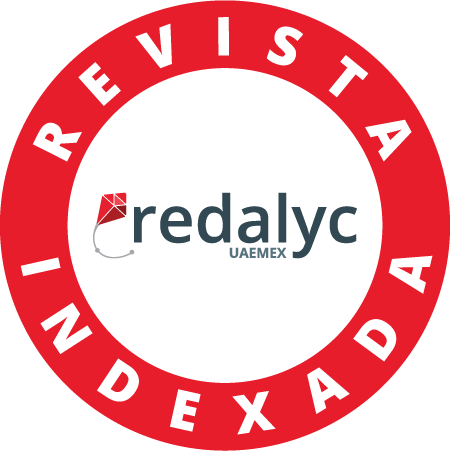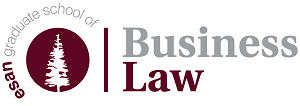Agotamiento del derecho de marca, importaciones paralelas y comercio internacional
DOI:
https://doi.org/10.46631/Giuristi.2023.v4n8.05Palabras clave:
agotamiento del derecho de marca, importaciones paralelas, comercio internacional, ADPICResumen
El principio del agotamiento del derecho es una de las materias más discu tidas en el derecho de la propiedad intelectual, y se ubica en medio de un debate que, hasta la fecha, no culmina con un acuerdo de alcance global. Sin embargo, su aplicación se encuentra presente en todos los países, y la evalua ción de sus efectos ha merecido la atención de la doctrina y de las cortes de justicia del mundo.
El presente trabajo se concentra en el campo de las marcas y trata de mos trar una perspectiva general sobre el agotamiento del derecho y su presencia en el comercio internacional a través de las importaciones paralelas. Asimis mo, incluye algunas de las razones económicas que fundamentan la existen cia o restricción de las importaciones paralelas, así como un análisis sobre su regulación en el derecho del comercio internacional
Descargas
Citas
Abbott, Frederick M. «First report (final) to the Committee on International Trade Law of the International Law Association on the subject of Parallel Importation». Journal of International Economic Law 1, n.° 4 (1998): 607-636. https://ssrn.com/abstract=915046
Abbott, Frederick M., Thomas Cottier y Francis Gurry. «International Intellectual Property in an Integrated World Economy». 4.a ed. Estados Unidos: Aspen Publishing, 2019.
Bertone, Luis E. y Guillermo Cabanellas de las Cuevas. Derecho de Marcas. Marcas, designaciones y nombres comerciales. 3.a ed., vol. 2. Buenos Aires: Heliasta, 2008.
Bonadio, Enrico. «Parallel Imports in a Global Market: Should a Generalised International Exhaustion be the Next Step?». European Intellectual Property Review 33, n.° 3 (2011): 153-161. https://papers.ssrn.com/sol3/papers.cfm?abstract_ id=1762900
Chiappetta, Vincent. «The Desirability of Agreeing to Disagree: The WTO, Trips, International IPR Exhaustion and a Few Other Things». Michigan Journal of Internacional Law 1, n.° 3 (2000): 333-392. https://repository.law.umich.edu/mjil/vol21/iss3/1
Chiappetta, Vincent. «Working toward international harmony on intellectual property exhaustion (and substantive law)». En Research Handbook on Intellectual Property Exhaustion and Parallel Imports. Editado por Irene Calboli y Edward Lee, 125-144. Gloucester: Edward Elgar, 2016.
Chronopoulos, Apostolos. «Exceptions to Trade Mark exhaustion: Inalienability rules for the protection of reputational economic value». 43 European Intellectual Property Review (2021): 352-365. https://ssrn.com/abstract=3875291
Cottier, Thomas. «Parallel Trade and Exhaustion of Intellectual Property in WTO Law Revisited». En Intellectual Property Ordering beyond Borders. Editado por Henning Grosse Ruse-Khan y Axel Metzger, 189-232. Cambridge: Cambridge University Press, 2022
Craig, Paul. «The Evolution of the Single Market». En The Law of the Single European Market: Unpacking the Premises. Editado por Catherine Barnard y Joanne Scott, 1-40. Oxford: Bloomsbury Publishing, 2002.
De las Heras, Tomás. El agotamiento del Derecho de marca. Madrid: Editorial Montecorvo, 1994.
Fink, Carsten. «Entering the Jungle of Intellectual Property Rights Exhaustion and Parallel Importation». En Intellectual Property and Development. Editado por Carsten Fink y Keith Maskus, 339. Nueva York: World Bank and Oxford University Press, 2005.
Frankel, Susy y Daniel J. Gervais. «International intellectual property rules and parallel imports». En Research Handbook on Intellectual Property Exhaustion and Parallel Imports. Editado por Irene Calboli y Edward Lee, 85-105. Cheltenham: Edward Elgar Publishing Limited, 2016.
Genovesi, Luis Mariano. «The TRIPS Agreement and Intellectual Property Rights Exhaustion». En Research Handbook on the Protection of Intellectual Property under WTO Rules: Intellectual Property in the WTO. Editado por Carlos M. Correa, 216-225. Cheltenham: Edward Elgar Publishing Limited, 2010. https://doi.org/10.4337/9781849806596.00013
Ghosh, Shubha e Irene Calboli. Exhausting intellectual property rights: a comparative law and policy analysis. Cambridge: Cambridge University Press, 2018.
Gómez Segade, José Antonio. «El Acuerdo ADPIC como nuevo marco para la protección de la propiedad industrial e intelectual». En Actas de derecho industrial y derecho de autor, dirigido por Carlos Fernández-Nóvoa. T. XVI (1994-1995), 33-80. Madrid: Marcial Pons-Ediciones Jurídicas y Sociales, 1996.
Hansen, Hugh C. «Gray Market Goods: A Lighter Shade of Black Symposium: The Controversy over the Importation of Gray Market Goods: Is a Resolution Forthcoming». Brooklyn Journal of International Law 13 (1987): 249-265.
Heath, Christopher. «Parallel Imports and International Trade». PDF, 1999. https://www.wipo.int/edocs/mdocs/sme/en/atrip_gva_99/atrip_gva_99_6.pdf
LaFrance, Mary. «Wag the Dog: Using Incidental Intellectual Property Rights to Block Parallel Imports». Michigan Telecommunications & Technology Law Review 20, n.° 1 (2013): 45-120. https://repository.law.umich.edu/mttlr/vol20/iss1/2
Malueg, David y Marius Schwartz. «Parallel imports, demand dispersion, and international price discrimination». Journal of International Economics 37, n.° 3-4 (1994): 167-195. https://doi.org/10.1016/0022-1996(94)90044-2
Maskus, Keith. Parallel imports in pharmaceuticals: implications for competition and prices in developing countries. Final Report to World Intellectual Property Organization. PDF, 2001. https://www.wipo.int/export/sites/www/about-ip/en/studies/pdf/
ssa_maskus_pi.pdf
Maskus, Keith E. «Economic perspectives on exhaustion and parallel imports». En Research Handbook on Intellectual Property Exhaustion and Parallel Imports. Editado por Irene Calboli y Edward Lee, 106-124. Gloucestershire: Edward Elgar Publishing Limited, 2016.
Matthews, Duncan y Viviana Munoz-Tellez. «Parallel Trade: A User’s Guide». En Intellectual Property Management in Health and Agricultural Innovation: A Handbook of Best Practices. Editado por Anatole Krattiger, Richard T. Mahoney, Lita Nelsen,
Jennifer A. Thomson, Alan B. Bennet, Kanikaram Satyanarayana. Gregory D. Graff, Carlos Fernandez, Stanley P. Kowalski. Vol. 2, 1429-1434. Oxford: MIHR and PIPRA, 2007. https://www.ipmall.info/sites/default/files/hosted_resources/IP_handbook/iphandbook_volume_2.pdf
Pires de Carvalho, Nuno. The TRIPS Regime of Trademarks and Designs. 4.a ed. Países Bajos: Kluwer Law International, 2019.
Zappalaglio, Andrea. «International Exhaustion of Trade Marks and Parallel Imports in the US and the EU: How to achieve symmetry?». Queen Mary Journal of Intellectual Property 5, n.° 1 (2015): 68-86.
Publicado
Cómo citar
Número
Sección
Licencia
Derechos de autor 2024 Gabriel Benites Arrieta

Esta obra está bajo una licencia internacional Creative Commons Atribución 4.0.
Todos los contenidos de la revista electrónica se distribuyen bajo una licencia de uso y distribución Creative Commons Atribución 4.0 Internacional (CC BY 4.0). Por el cual:
Usted es libre de:
- Compartir — copiar y redistribuir el material en cualquier medio o formato para cualquier propósito, incluso comercialmente.
- Adaptar — remezclar, transformar y construir a partir del material para cualquier propósito, incluso comercialmente.
La licenciante no puede revocar estas libertades en tanto usted siga los términos de la licencia.
Bajo los siguientes términos:
- Atribución — Usted debe dar crédito de manera adecuada , brindar un enlace a la licencia, e indicar si se han realizado cambios . Puede hacerlo en cualquier forma razonable, pero no de forma tal que sugiera que usted o su uso tienen el apoyo de la licenciante.
- No hay restricciones adicionales — No puede aplicar términos legales ni medidas tecnológicas que restrinjan legalmente a otras a hacer cualquier uso permitido por la licencia.
Los autores retienen sus derechos de autor respecto de los artículos sometidos sin ningún tipo de restricciones. De esta manera, los autores retienen el derecho de compartir, distribuir, copiar, ejecutar y comunicar públicamente el artículo publicado en Giuristi, Revista de Derecho Corporativo; esto incluye la posibilidad de colocarlo en un repositorio institucional. Los autores conservan el derecho de hacer una posterior publicación de su trabajo, de utilizar el artículo o cualquier parte de aquel (por ejemplo: una compilación de sus trabajos, notas para conferencias, tesis, o para un libro), siempre que indiquen la fuente de publicación (autores del trabajo, revista, volumen, número y fecha).












